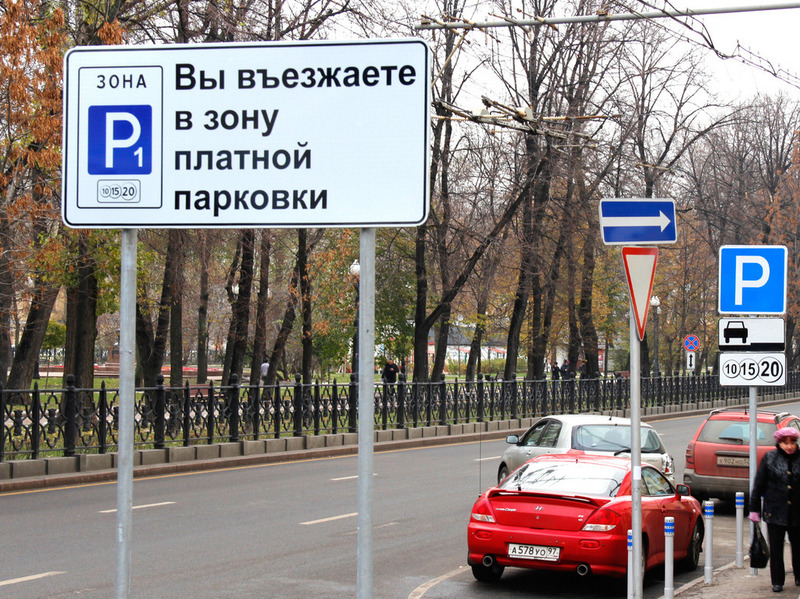Вообще не понимаю, как такое может быть. За три года в Москве обустроили 50 тысяч платных парковочных мест. За всё время со всех этих мест собрано 5,8 миллиардов рублей в виде платы от автовладельцев. И за этот же период на проект платных парковок потрачено... 16 млрд рублей из бюджета города.

Вот подробное расследование «Ведомостей» на эту тему (ужасно рад, что «Ведомости» возвращаются к таким форматам, где они всегда выступали отлично).
Таким образом, собрали в три раза меньше, чем потратили. Для меня эта цифра выглядит ещё более шокирующей, ведь я отлично знаю, что в огромном количестве случаев, так называемое «обустройство парковок» — это просто прямая кража городских денег Ликсутовым и Ко. Там постоянно выделяли средства на обустройство уже существующих парковок, вот здесь много железных доказательств.
Мало того, «Ведомости» выяснили, что деньги от платных парковок уже больше года не поступают на благоустройство районов (а это главный пропагандистский пункт мэрии при проталкивании идеи расширения зоны платных парковок):
«Дело в том, что никаких существенных денег от парковок мы в 2015 г. уже не получали, город забрал их себе и определил, на что тратить», — объяснил на условиях анонимности сотрудник одной из центральных управ. Собеседник «Ведомостей» считает это правильным. «При такой непростой финансовой ситуации, как сейчас, деньги стоит тратить на действительно важные программы, тогда как если спрашивать жителей района, то они потребуют каких-то мелких улучшений — кому собачьих площадок не хватает, а кто требует подъезд перекрасить, хотя его не так давно ремонтировали», — объясняет он.
«Действительно важными программами», о которых говорит чиновник, оказались идиотские бордюры. Бессмысленный собянинский проект, ради которого разворотили пол-Москвы.
Вернее, как бессмысленный: он для города такой, а для чиновников осмысленный, своим родственникам подряды передали
В итоге, по данным департамента, 80% доходов от парковок в 2015 г. — т. е. около 1,6 млрд руб. — пошло на финансирование инициированной мэром Москвы Сергеем Собяниным городской программы «Моя улица», предусматривающей благоустройство центральных улиц и вылетных магистралей. Какие именно улицы стоит благоустроить в 2015 г., москвичи выбирали через голосование в приложении «Активный гражданин». На 50 выбранных улицах и вылетных трассах в прошлом году были расширены тротуары, установлены новые бордюры...
... Среди подрядчиков программы РБК нашел три компании, связанные с людьми, чьи фамилии совпадают с фамилиями родственников вице-мэра Петра Бирюкова, отвечающего за исполнение программы. Эти структуры получили подряды в общей сложности более чем на 2 млрд руб.
Яростные адепты платных парковок скажут: да неважно, что украли и куда потратили деньги, главное, что платные парковки вводят. Автомобилисты платят за свои драндулеты на общей земле.
А я как раз скажу о том, что происходящее полностью обессмысливает любую содержательную дискуссию о введении в городе платных парковок. Любые данные об эффективности проекта скрываются. Достоверной открытой статистики (и «Ведомости» это показывают) нет. Коррупционный мотив расширения зоны платной парковки становится всё более очевиден. Ложь о предназначении собранных с автовладельцев денег дискредитирует саму идею.
Невозможно оценить эффективность принятых мер и сравнить её с другими городами или районами внутри Москвы. Всё заменяется враньём. Всё, включая непроверяемые данные о снижении пробок в городе, что постоянно заявляют и Собянин, и Ликсутов.
Вот у меня рядом с домом (это Марьино, а не центр) недавно запретили парковку вдоль дороги — эвакуаторы начали ездить, а у метро ввели платную парковку. Были бы какие-то объективные и проверяемые данные о том, что это даст — ок, можно обсуждать.
А так что имеем? У жителей дома увозят машины, чтобы заставить их пойти на парковку, где на каждый рубль, потраченный жителем, у него из кармана возьмут ещё три рубля через бюджет, чтобы Ликсутов заработал? Да и тот рубль, что он сам заплатил, перераспределят в пользу родственников вице-мэра Бирюкова.

